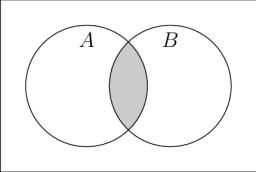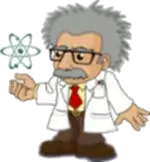Intersection of two sets
A = {a, b, c, d, e, f, g, h, i}, B = { d, g, f, k, j, a}, find A ∩ B.
Result
Result

You need to know the following knowledge to solve this word math problem:
algebraGrade of the word problem
Related math problems and questions:
- Three equations
 Find the solution to the equations x-y+z=-1 x+y+3z=-3 2x-y+2z=0
Find the solution to the equations x-y+z=-1 x+y+3z=-3 2x-y+2z=0 - Quadratic equation
 Find the roots of the quadratic equation: 3x²-4x + (-4) = 0.
Find the roots of the quadratic equation: 3x²-4x + (-4) = 0. - Equation integer solution
 Find the solution of the equation: 2x: 8 = 3 ÷ 4, where x is an integer.
Find the solution of the equation: 2x: 8 = 3 ÷ 4, where x is an integer. - Linear imaginary equation
 Given that 2(z+i)=i(z+i) "this is z star" Find the value of the complex number z.
Given that 2(z+i)=i(z+i) "this is z star" Find the value of the complex number z. - Given
 Given 2x =0.125, find the value of x
Given 2x =0.125, find the value of x - Equation 23
 Find the value of unknown x in the equation: x+3/x+1=5 (problem finding x)
Find the value of unknown x in the equation: x+3/x+1=5 (problem finding x) - Simple coefficient
 Find the value of k; if x = 3, y = 2 is a solution of the equation 2x + 3y = k.
Find the value of k; if x = 3, y = 2 is a solution of the equation 2x + 3y = k.
